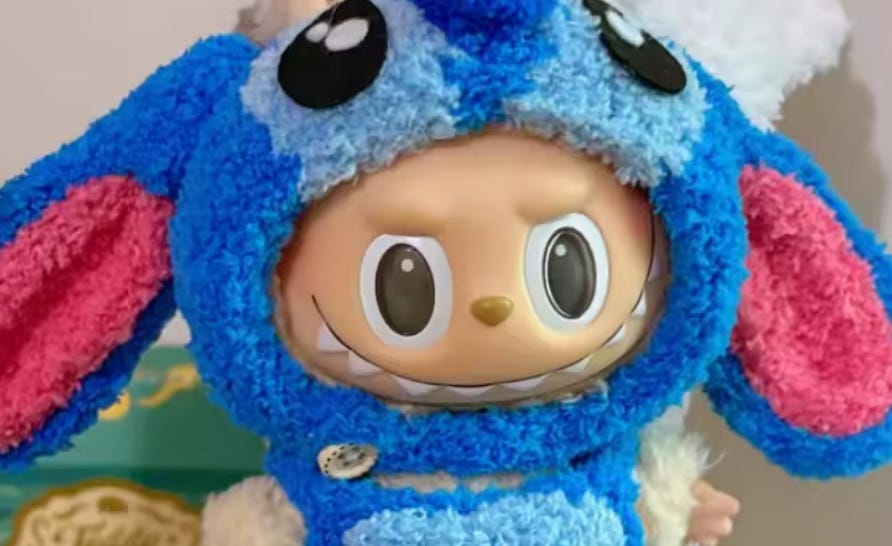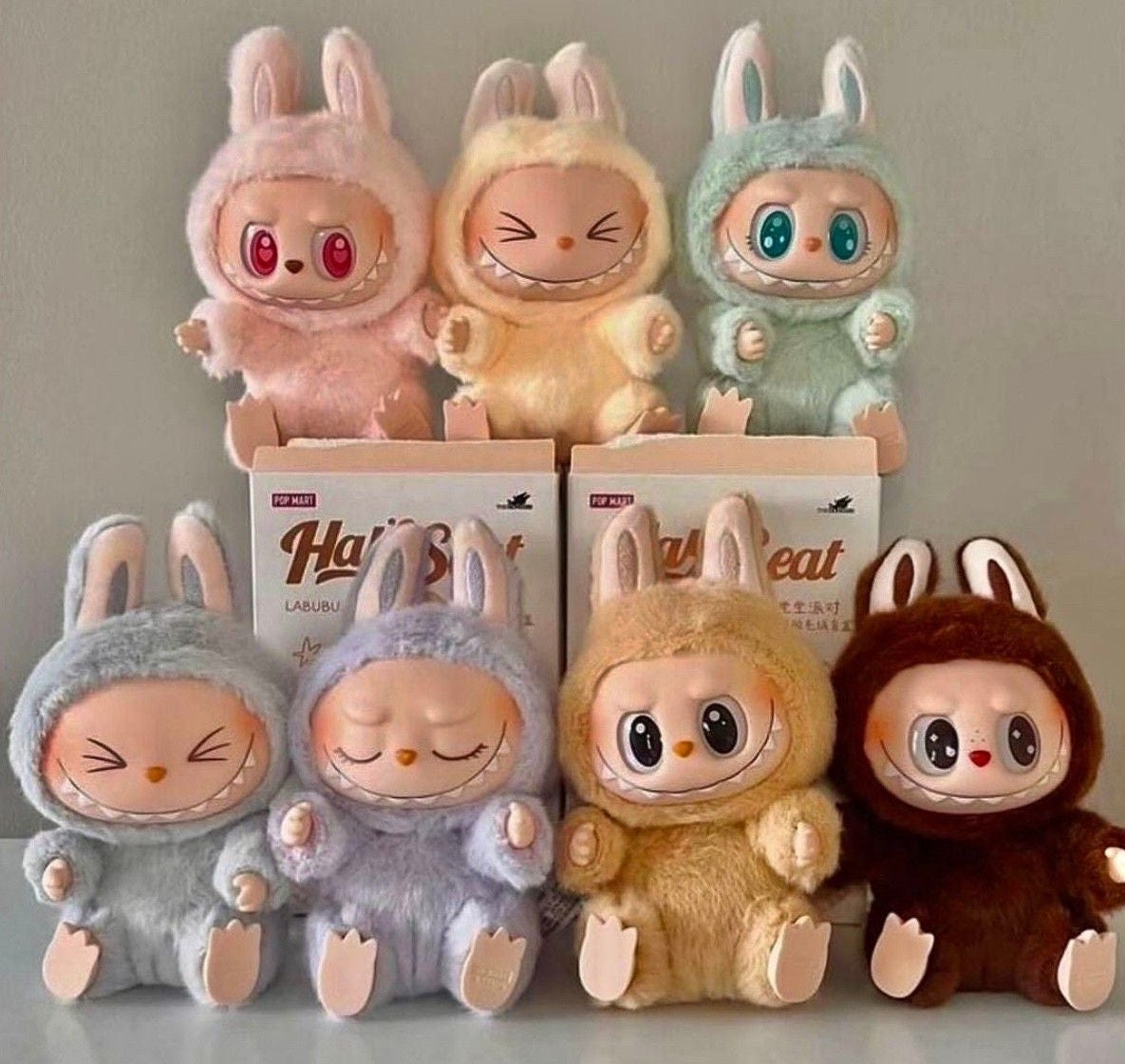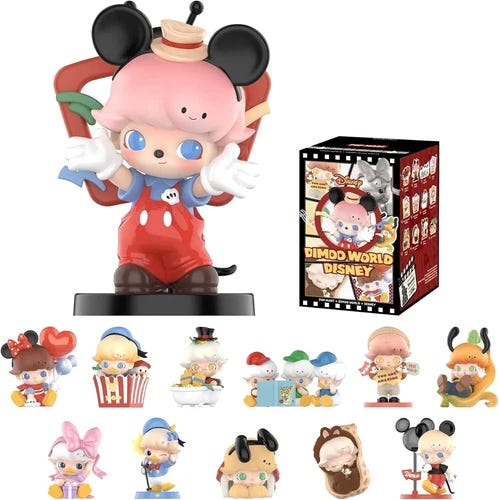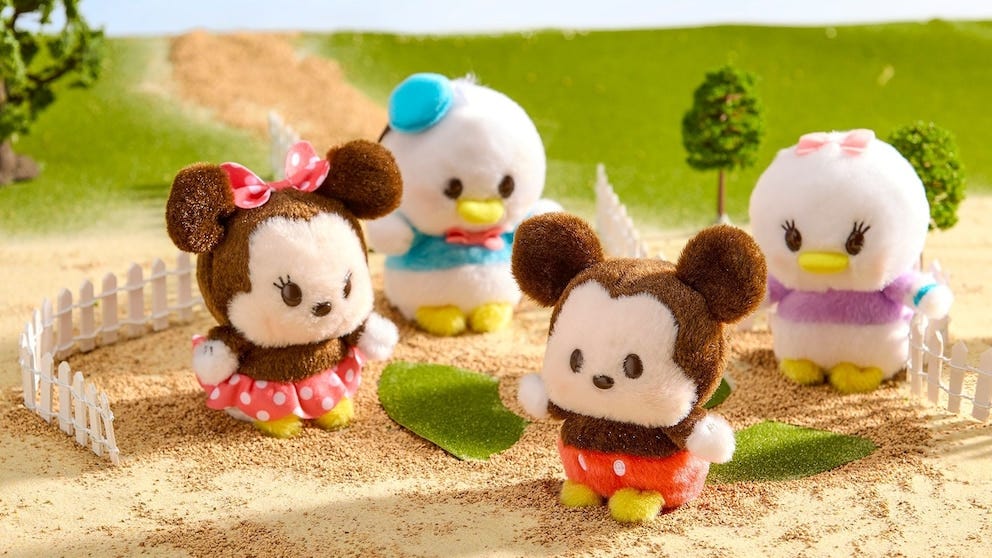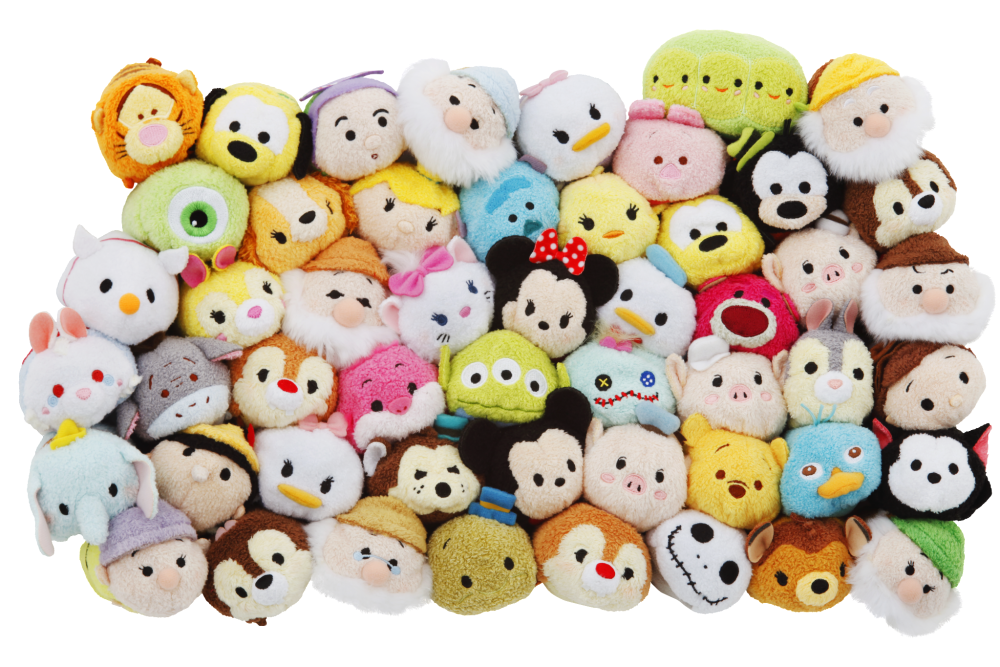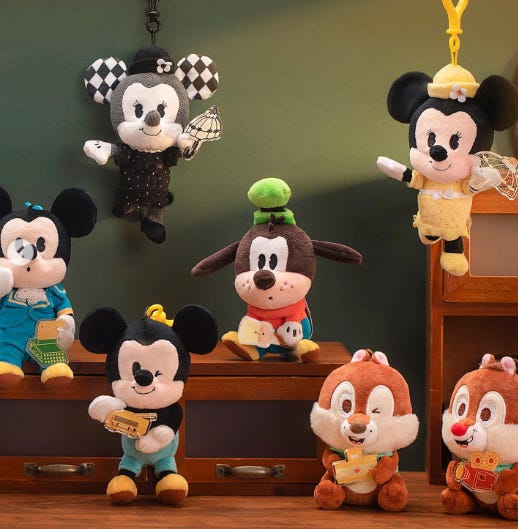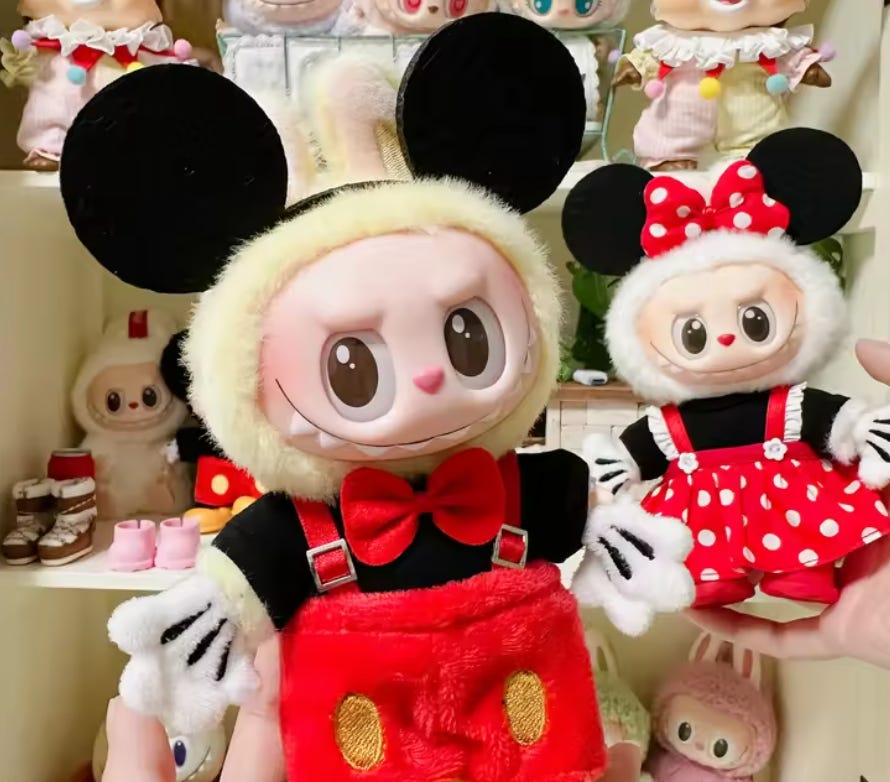Is Labubu Made by Disney or What?
Does Disney make Labubu? Will Disney buy Labubu? Let’s talk about this Disney x Labubu boo boo.
If you've been swept up in the 2025 Labubu mania — those quirky, toothy plushies turning bags into monster parades — you might've heard whispers that Disney's behind it all.
After all, with Mickey Mouse mastering merch worldwide, it's easy to assume the House of Mouse cooked up this blind box sensation. But spoiler: Labubu isn't a Disney original, though the connections run deeper than you think — from shared collab vibes to Disney's own overseas charm offensives mimicking the craze.
As Pop Mart's stock skyrockets and collectors hunt rares, let's unpack who really makes Labubu, any Mouse House ties, and how Disney's dipping into similar territory with their global goodies.
Here’s the TL;DR…
Who makes it: Hong Kong artist Kasing Lung created Labubu in 2015; Chinese toy giant Pop Mart handles production and sales.
Disney connection: None direct — Labubu's independent — but Pop Mart collaborates with Disney on other blind boxes, and Disney launched Urupocha-chan plushies in 2025 to ride the Labubu wave.
Similar Disney lines: Think blind box figures like Disney Doorables or overseas exclusives such as Japan’s Urupocha-chan bag charms and Hong Kong Disneyland's character keychains.
Why the confusion: Labubu's blind box style mirrors Disney's collectible merch, plus Pop Mart's Disney-licensed series blur the lines.
Pricing overlap: Both start affordable ($9-$30 for basics), but rares resell for hundreds, fueling the hype.
2025 twist: Disney's tapping the trend amid Labubu thefts and bans at parks, showing how viral toys cross empires.
Who Actually Makes Labubu Anyway?
Labubu isn't some corporate giant's brainchild — it started small and artsy.
Hong Kong illustrator Kasing Lung dreamed up the character in 2015 as part of his children's book series The Monsters, drawing from Nordic folklore for those elf-like gremlins with pointy ears and jagged grins. Lung, who split time between Hong Kong and the Netherlands, aimed for whimsical tales of mischievous creatures, not global domination.
Enter Pop Mart in 2019: the Beijing-based toy powerhouse licensed Lung's designs, transforming Labubu into a blind box powerhouse. You know the drill — mystery packs where you gamble on variants, from basic plush keychains to limited-edition outfits.
By August 2025, Pop Mart had expanded to over 500 stores worldwide, with vending machines spitting out Labubus like candy — and billions in revenue. Its scarcity model hooked Gen Z, turning a $9 blind box into a resale beast worth up to $170,000 for ultra-rares.
No Disney fingerprints here; Labubu's pure Pop Mart magic, with Lung still involved in new drops. But the mix-up makes sense — Disney's merch machine is everywhere, and Pop Mart's style echoes the Mouse's collectible chaos.
Is There Any Real Disney Connection to Labubu?
Straight up: Disney doesn't own, make, or license Labubu — it's all Pop Mart and Kasing Lung.
But the ties are tantalizingly close. Pop Mart has cranked out Disney-collaborated blind boxes since 2020, like the DIMOO WORLD × DISNEY Series vinyl plush keychains featuring Mickey, Winnie the Pooh, and pals in quirky, Labubu-esque poses. These aren't Labubu, but they share the blind box thrill, fuzzy charm, and bag-dangling appeal, blurring brands for casual fans.
In a cheeky 2025 move, Disney Japan launched Urupocha-chan — palm-sized plush bag charms inspired by characters like Pooh and Stitch — right as Labubu fever peaked. Priced around $15-$25, these “urupocha” (Japanese for “fluffy”) toys mimic Labubu’s ugly-cute vibe, complete with blind bags and collectible hype.
Analysts call it Disney's savvy play to capture the craze, especially in Asia where Pop Mart dominates malls. Urupocha-chan sold out online in days, proving Disney's eyeing that Labubu market share.
Weirder still: Labubu’s faced “bans” at Disney parks. In July 2025, reports surfaced of cast members at Disneyland Paris and Hong Kong Disneyland asking guests to remove dangling Labubus, citing safety (they could snag on rides) or IP confusion. One viral clip showed a “villain” character jokingly “going off” on a Labubu, sparking memes about Disney jealousy.
No official ban, but it highlights how Labubu's invading Disney turf.
How Labubu Stacks Up to Disney's Similar Lines
Disney's no stranger to blind box mania or overseas exclusives, making Labubu feel like a twisted cousin.
Stateside, lines like Disney Doorables — mini figures in mystery packs starting at $5 — echo Labubu's surprise element, with themes from Pixar to Marvel.
Overseas, it's even closer: Hong Kong Disneyland's exclusive keychains and plush charms, often blind-bagged, cater to Asian collectors obsessed with bag accessories.
Take Japan: Beyond Urupocha-chan, Disney Stores there drop limited plush pendants like Tsum Tsum stacks or character-inspired blobs, blending kawaii with collectibility. In China, where Pop Mart reigns, Disney partners with local firms for blind boxes featuring Frozen or Lion King twists, priced $10-$20 to snag budget buyers.
Pop Mart's Disney collabs amp the similarity — their Skullpanda or Molly series with Disney IPs mix spooky-cute aesthetics, much like Labubu's gremlin charm.
In 2025, amid economic pinches, both brands lean on affordable luxuries: Disney's overseas merch rakes in via apps and pop-ups, while Labubu flips for profits on StockX.
Why the Disney Mix-Up Persists in 2025
Blame the global toy wars.
With Labubu generating $418 million for Pop Mart in H1 2025 — boosted by celeb flaunts from Lisa to Rihanna — Disney's scrambling to compete. Their overseas push, like expanding blind boxes in Asia-Pacific, mirrors Pop Mart's model, leading to assumptions they're one and the same.
Plus, knockoffs muddy waters: fake “Disney Labubus” flood Alibaba, blending brands illegally.
X buzz in August 2025 shows confusion peaking, with threads asking “Disney’s Labubu collab when?” amid thefts of real ones from U.S. stores.
Environmental angles add shade — both use plastics, sparking sustainability debates — but the overlap keeps rumors alive.
If Disney ever licenses Labubu (unlikely, per insiders), it’d be merch Armageddon.
People Also Ask —
Who makes Labubu dolls? Hong Kong artist Kasing Lung created them in 2015, with production and sales by Chinese company Pop Mart.
Is Labubu owned by Disney? No, Labubu is independent, but Pop Mart collaborates with Disney on other blind box lines, and Disney has similar products like Urupocha-chan.
What are Disney's blind box toys? Popular ones include Disney Doorables mini figures and overseas exclusives like Japan's Urupocha-chan plush charms.
Why do people think Labubu is Disney? The blind box format and bag charm style mirror Disney's collectibles, plus Pop Mart's Disney-licensed series cause confusion.
Are there Labubu-Disney collaborations? Not directly, but Pop Mart's DIMOO WORLD × DISNEY blind boxes blend similar vibes with Disney characters.
Where to buy Disney alternatives to Labubu? Check Disney Stores online, especially Japan exclusives, or Pop Mart for their Disney collabs starting at $10-$50.
Sources:
News compiled and edited by Ivy Adams for Pirates & Princesses.


